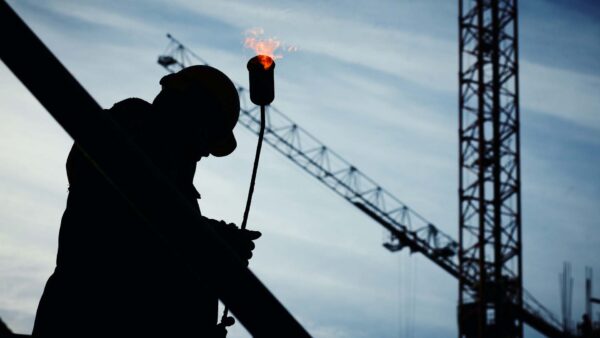Electricians in Ontario are highly regulated, rigorously trained and held to the highest safety standards of any tradesperson in the province.
For this reason,
Electrical contractors who are licensed and use only licensed master electricians and well-supervised apprentices actually don’t make a lot of insurance claims. That’s good news, because it means that your electrical contracting business can get the insurance it needs for a very reasonable price.
Theft of materials
When electrical contractors do make claims, they are most likely related to theft of materials from the job site or from vehicles. Copper wire and electrical components are expensive, fairly easy to steal and transport, and fairly hard to track when stolen. Thieves target construction sites where wiring and electrical components may be left in an unlocked trailer, or even if wire’s already been installed, they simply grab an end…and pull. Hundreds of feet of wiring can be stolen in a few minutes.
Fire claims
Other than theft, by far the most common type of claim made by electrical contractors is liability claims for fire losses. The frequency and severity of these claims depends on exactly what kind of electrical work your business focuses on.
New installation vs. repair/renovation
Fire claims are much more common for electrical contractors who do repairs, installations and rewiring in existing buildings, especially older buildings that have outdated wiring. When wiring a new building, all of the wiring and components are new and, as such, meet the current safety standards. Also, the wiring, components and connectors are built to connect with one another.
Doing electrical work on an existing building often involves connecting new components to older components, and that dramatically increases the chances that a connection will fail, overheat and cause a fire. A homeowner with knob and tube wiring who hires you to install some light fixtures won’t want to pay thousands of dollars to rewire the entire house, so you will be forced to work with the existing electrical system. Even if old wiring is to blame for a fire, if the fire started close to a location where you did work, expect that the homeowner will make a claim against you.
Residential vs. commercial
Claims for fire losses are no more or less common whether you are working in people’s homes or in commercial buildings like office towers, warehouses and factories. What is dramatically different is the cost of the claims. Whereas commercial buildings are typically made of steel and concrete, most homes are built of wood. The risk of an electrical fire is the same, but in a commercial building, the damage has a better chance of being contained. Any fire that starts in a house could potentially burn down the whole thing.
Common claim scenario
You are subcontracted to do the wiring on a new 60,000 square foot office building. The job requires about $25,000 worth of copper wiring and components. One morning, you arrive at the site to see that someone has forced the lock on your trailer and stolen about $7,500 worth of wiring, and tools worth about $1,200.
Total claim: $10,200 (including repairs to the trailer)
Tips for avoiding claims
Because theft is the most common type of claim, the key avoiding a claim as an electrical contractor is to make sure that all tools and equipment are locked away when you’re not using them, and to avoid bringing wiring to the site until you’re ready to install it. Whether you work directly for clients or as a subcontractor, security cameras on the work site are a great idea.
In terms of avoiding fire claims, the best advice is:
- Avoid jobs where you are working with and around wiring and components that are substandard, worn or damaged.
- Obviously, some customers will insist. Mention to them that improper wiring could make it difficult to make a claim on their home insurance should something happen.
- If you’re concerned about a connection that includes older components, take a picture with your smartphone and make a note that you advised the customer to do the work properly, and they refused.
Electrician insurance usually includes coverage for:
- General liability (protecting your business from legal action against you)
- Tools and equipment (if they are damaged, destroyed or stolen)
- Installation floater – covers wiring and other materials while in transit or at the work site awaiting installation. As described in the claim scenario above.
Other coverage to consider:
- Business auto insurance – If your business owns vehicles, you need business (or commercial) auto insurance. Even if you drive your own truck for work, your personal auto insurance may not cover you if you crash while driving for work.
- Business property insurance – Business property insurance is like the insurance you have for your home. If you own the building, it covers the building. Either way, it provides coverage for anything that’s kept inside.
- Cyber and data breach insurance – There are big costs involved if you get hacked and someone gets a hold of your client data, or if a virus renders you unable to pay bills, send invoices etc. Cyber insurance helps with the cost of notifying clients and restoring systems.
- Legal expense insurance – If you think you are likely to get sued or maybe even sue someone else, legal expense insurance can help. Plus free legal advice, even if the question has nothing to do with your insurance coverage.
Learn more about electrician insurance
(Our thanks to Steve Schmelzle from RSA Insurance, one of our trusted contractor insurance partners, who agreed to share his expertise for this piece.)
Looking for contractor insurance?
Speak with a Mitch Insurance broker today to get a quote on Ontario contractor insurance. Learn more >
Call now
1-800-731-2228








